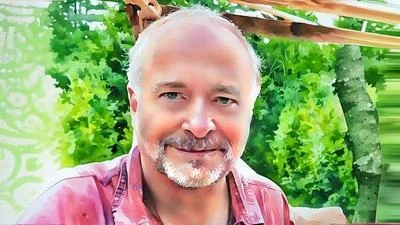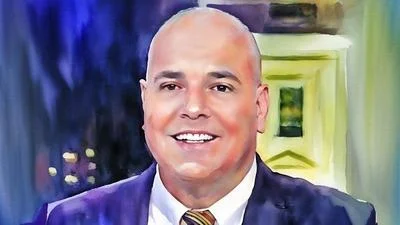Adam Thierer has spent the last 34 years advocating for a freer, more innovative future.
He is a senior fellow for Research and Technology at the R Street Institute, and was previously at institutions including the Mercatus Center, the Progress and Freedom Foundation, Heritage, and Cato. He champions “permissionless innovation”—the idea that society thrives when innovators don’t need prior approval to create.
“Permissionless innovation is just about freedom,” Thierer says. “It’s about freedom as applied to technological innovation and the entrepreneurial activities of a free society.” He contrasts it with the “precautionary principle,” which he describes as the “mother, may I” approach to policy—a system that demands bureaucratic permission before any new idea is allowed to flourish.
Thierer argues that this European-style model stifles progress and should be the exception, not the rule. “When the harm in question is highly probable, tangible, immediate, irreversible, and catastrophic,” he says, “then you have higher grounds for imposing some sort of variant of the precautionary principle.”
Thierer draws a line between genuinely harmful technologies—like weaponized robots—and tools that simply introduce new risks. He warns that overregulation can halt entire industries before their benefits are even realized. “Nuclear power is the ultimate example. We have essentially ‘precautionary-principled’ nuclear [power] out of existence.”
Artificial intelligence is the latest battlefield in the war between innovation and regulation. Thierer sees AI as “the most important general-purpose technology of modern times,” yet he’s alarmed by the rush to regulate it. “We are talking about bottling up intelligence and knowledge,” he says. “And we should really think hard about the wisdom of doing so.”
Thierer identifies three primary areas of AI regulation: existential risk, conduct and bias, and sector-specific controls. “Right now, there are 820 AI bills pending in the United States,” he says. “I have never in my life seen this level of regulatory interest in preemptively regulating technology.”
He calls the effort to limit computing power a “war on computation” and compares it to the overregulation of nuclear energy. “The more powerful the system, they say, makes it more dangerous—which isn’t necessarily true.”
Thierer also sees regulatory overreach as fertile ground for cronyism. “Many people have talked about how AI companies are trying to utilize the law to create a broader regulatory moat around their castle,” he says. It’s a strategy in his view to “basically preserve their market power,”by using regulations to freeze out competition. “In the mid-90s,” he points out, “our lawmakers said enough of that,” because “that undermined consumer choice, competition, investment, and innovation.”
Thierer believes cultural attitudes must shift if innovation is to flourish. “Everything new is feared until it is demanded,” he says, pointing to how entertainment and media have conditioned the public to see emerging technologies as threats. “If we assume that hypothetical worst-case scenarios are the norm and should be the basis of public policy, then it means a whole host of good case scenarios can never come about.”
Thierer recognizes the trade-offs in today’s digital world. “The internet and the digital technology revolution from my perspective has been wonderful, but it has not been all sunshine and roses.”
As a father of two digital natives, he’s seen the promise and pitfalls firsthand. But he still marvels at the transformation: “We were starved for informational inputs, and now we live in a world of information abundance,” he says. “We have solved the fundamental problem of communications policy for the past century.”
That abundance extends to everyday life. Thierer reminisces about the days of cassette tapes, long-distance phone bills, and paper maps. “Now you hear something, and you can immediately go to Spotify or Google or YouTube and get it instantaneously.” He jokes that his daughter once asked why people say “hang up the phone” when smartphones have no cradle. “Things have changed in many positive ways, but we only look at the negatives.”
Remote work is another area where Thierer sees both gains and losses. “Covid gave us a chance to have a real-world experiment,” he says. He misses the “casual, colloquial chatter that happens around a coffee pot.” Some of his best work, he says, came from spontaneous hallway conversations. “All things in new life have trade-offs.”
Thierer’s journey into tech policy was a lucky accident. After missing out on a parliamentary internship in 1991, he stumbled into a think tank role at the Adam Smith Institute and never looked back. He initially focused on trade policy, but a single conversation about “this thing called the internet” led him to become one of the first digital technology analysts in Washington. He describes the situation as “right guy, right place, right time, complete luck.”
He says his happiness is found in the freedom to explore, to innovate, and to protect the spaces where creativity can thrive. “We need to continue that model for AI, so that it becomes another technology of freedom and not one of control and repression.”









